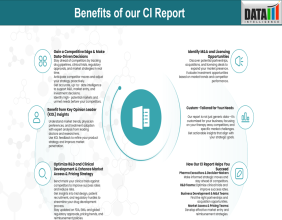Persimmon PLC (LSE:PSN), a prominent housebuilder, has seen notable shifts in market conditions that are starting to benefit the company. This follows a period where the housing sector faced significant challenges. The company's recent half-year results reflect these evolving conditions, and the steps Persimmon has taken to adapt and thrive.
Management of Building Costs
The company has effectively managed its building costs, which had previously been a major issue. Two years ago, cost inflation peaked at around 10%, but it has since stabilized and remains flat for the current year. This stability has been aided by Persimmon’s ownership of manufacturing facilities for bricks, tiles, and timber frames, which provides a steady and cost-effective supply of building materials.
Government and Market Reactions
The new government’s recent policy announcements have also had a positive impact on the housing sector. Changes in planning regulations, which had previously limited growth opportunities, have led to an increase in planning permissions since the new administration took office. Additionally, a recent reduction in UK interest rates has stimulated the mortgage market, potentially easing affordability issues, particularly for first-time buyers—a segment where Persimmon has traditionally had a strong presence.
Sales and Market Activity
The Spring selling season showed improvement, partly due to Persimmon’s enhanced marketing strategies, especially in digital advertising. Net private sales per outlet per week rose to 0.71 from 0.59, marking a 20% increase. The company's forward order book stands at £1.12 billion, representing a 28% rise compared to the previous year. This increase reflects a more favorable market environment.
Home Completions and Pricing
New home completions increased by 5% to 4,445 units. Persimmon has adjusted its full-year guidance upwards to 10,500 homes, from a previous range of 10,000 to 10,500. The average selling price of homes has also risen by 3% to £263,000. A 3.2% decline in land prices over the past year has enabled Persimmon to continue its selective purchasing strategy, with £195 million spent on land acquisitions, bolstering future returns.
Financial Performance
Despite some ongoing challenges from the previous year, Persimmon's financial performance shows mixed results. Underlying operating profit remained flat at £152.3 million, while pre-tax profit decreased by 3% to £146.3 million. However, this was still above the expected £129 million. Revenue increased by 11% to £1.32 billion, exceeding the forecast of £1.2 billion.
Balance Sheet and Dividend
The company’s balance sheet remains robust, with net cash of £350 million and an additional £750 million in accessible liquidity. Persimmon has maintained its dividend at a yield of 3.9%, which, while modest compared to some peers, reflects a cautious approach to preserving capital amid recent challenges.



